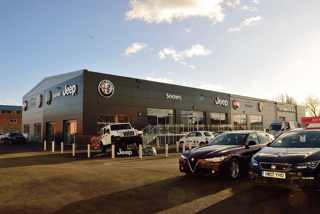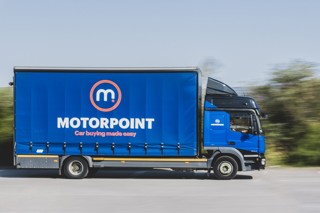Digital finance processes are allowing car retailers to “shave more and more time off the online motor finance process” and improve customers’ retail experience, says Startline Motor Finance.
The automotive finance provider’s chief executive, Paul Burgess, claims that the sector has begun to see real, measureable results from the digitalisation of processes during the COVID-19 coronavirus pandemic and insists there is “no going back”.
Burgess said: “Almost month-by-month, we’ve seen an increasing impetus to shave more and more time off the online motor finance process. This has produced real and measurable results. The faster and easier the application, the higher the number of deals written.
“The question, going forward, is whether these improved processes will markedly increase the number of people who are willing to buy a car online or simply improve the conversion rate for those who are already willing to do so.
“Our feelings are that this is not yet clear but that it does mean that nearly all dealers are now in much better shape as agile, adaptable, digitally-enabled modern businesses as we emerge from the pandemic.”
Last week AM reported on a GForces study which claimed that the UK’s automotive retail sector could stand to save £950 million on the cost of sales through a wholesale shift to online retail.
Paul Stokes, head of ecommerce at the automotive ecommerce software provider, said that a change in staffing structure, job roles and skillset would be need to make the shift that would facilitate the shift.
But former dealer Nidd Vale Group and Rockar managing director Stokes said that a GForces’ research had indicated that even a 30% transition towards online could save the sector £47m a year, suggesting a blended approach was still the best solution.
Startline’s Burgess said that, regardless of the extent of the switch ultimately made by car retailers, the sector’s acceleration in digital process over the past 12 months had already seen it catch up with other retail sector businesses.
He said: “This is, to some extent a simplification, but a year ago, most online dealer processes ultimately worked but lacked the speed and overall slickness that you’d see from an Amazon or a John Lewis.
“There were good reasons for this disparity but by far the most important was the relative complexity of buying a car online compared to, say, a book or a shirt.
“What we have seen happen over the last year has been a closing of that gap. Successive lockdowns have forced dealers into a situation where they have needed to maximise online sales and so a lot of attention has been paid to smoothing and speeding up the processes involved.
“As a result, some points that were seen as too difficult to easily resolve, such as part exchanges, have been tackled in a concerted manner.
“We’re now in a situation where even quite small dealers can offer extremely competent online processes that include the sale, a p/x facility, finance, aftersales products and delivery, and larger dealers can often do even more.
“Many have now accelerated their online presence to a point where they can compete with almost any digital retail process. Considering the sophistication of the average car buying journey, this is a considerable achievement.”



















Login to comment
Comments
No comments have been made yet.